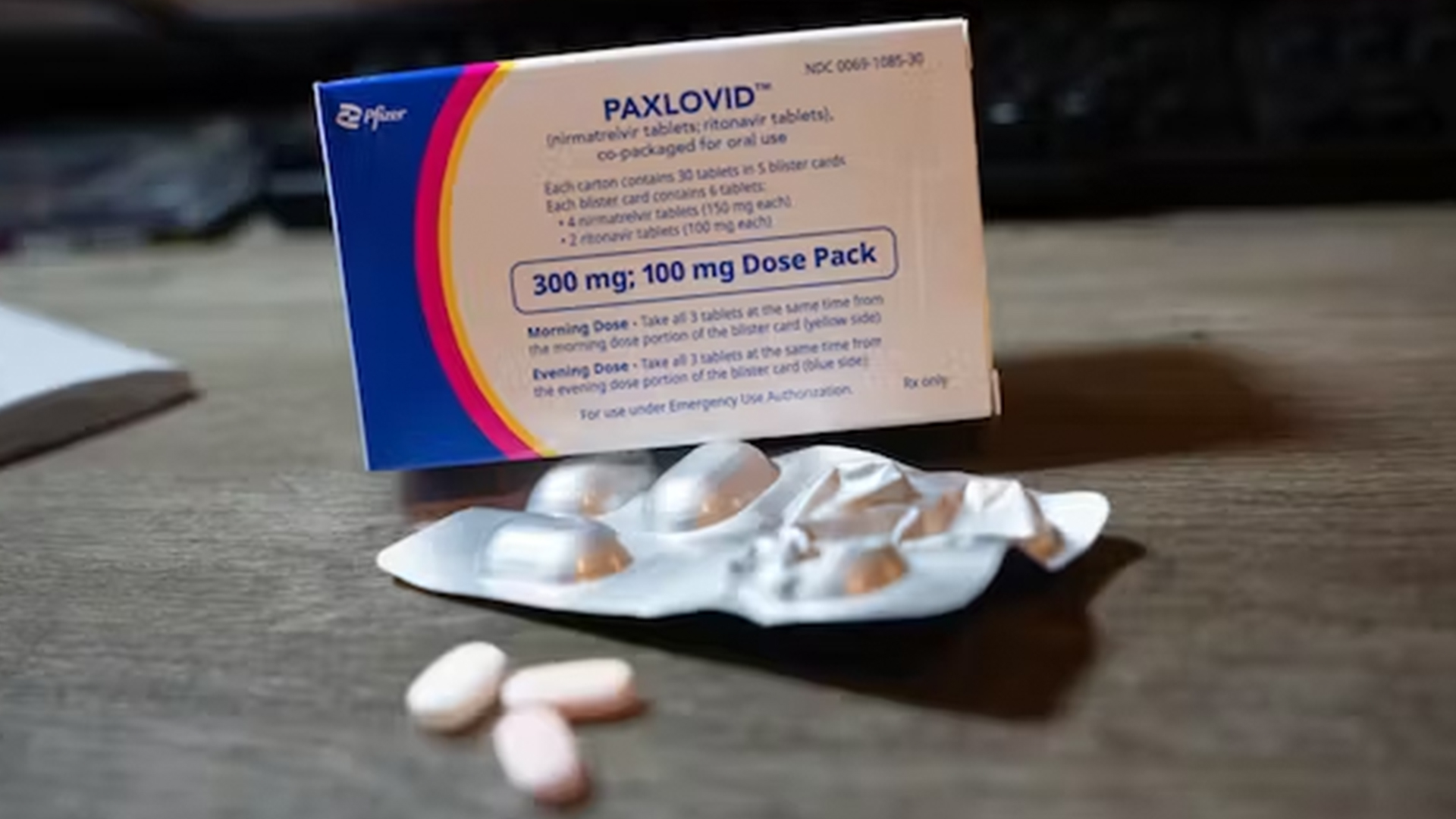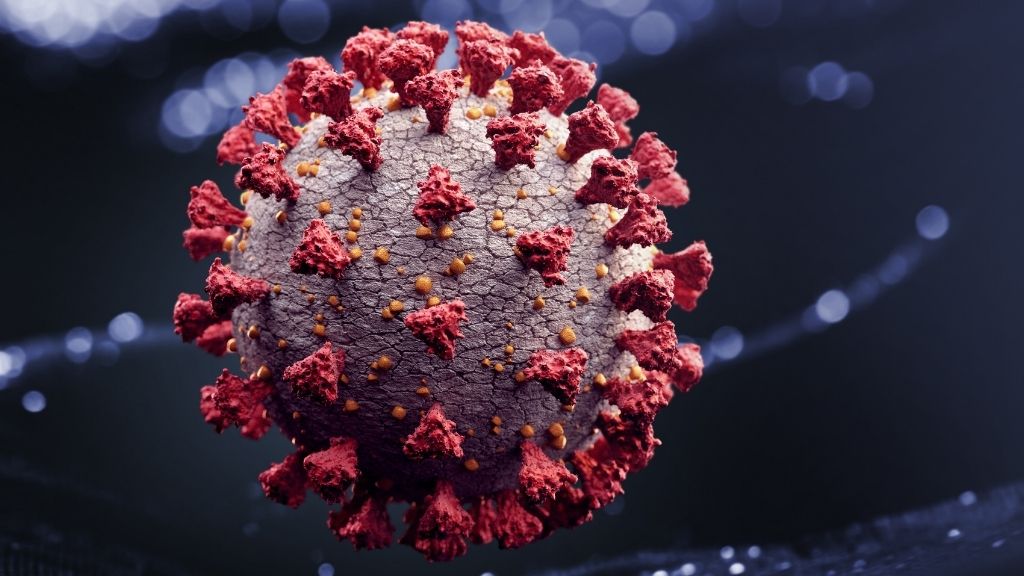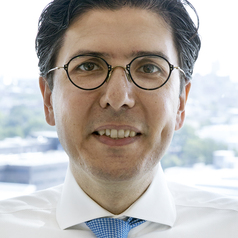Can antiviral drugs prevent long COVID?
Experts explain what we know about preventing and treating long COVID, at this point.

Evidence is continuing to accumulate on the burden and frequency of chronic effects after a COVID infection, which fall under the umbrella term "long COVID."
At least 5% to 10% of people who contract COVID experience long COVID. This can include symptoms (for example, fatigue, brain fog and breathlessness) or conditions (for example, heart conditions, neurological conditions and diabetes) after the initial infection that may be persisting, new or relapsing.
Studies show the symptoms and increased risk of chronic conditions can persist for up to two years after infection. The individual impact of long COVID can range from temporary to severely disabling, and the societal cost — for example due to reduced workforce and increased health-care costs — is enormous.
The lower risk of developing long COVID with up-to-date COVID vaccinations is substantially offset by the high levels of infections and re-infections globally. As a result, the cumulative burden of long COVID has increased, including in lower and middle income countries. A conservative estimate suggests 65 million people may be currently affected globally.
So where are we at with reducing the risk of, and treating, long COVID?
Related: Long COVID: 3 years on, here's what we know so far
Could antivirals reduce the risk of long COVID?

COVID antiviral drugs, taken orally, continue to play an important role in reducing acute severe disease after infection. In Australia, they're available to those at highest risk from COVID.
Sign up for the Live Science daily newsletter now
Get the world’s most fascinating discoveries delivered straight to your inbox.
Observational research has suggested taking antivirals during a COVID infection can reduce the risk of long COVID in people with at least one risk factor for acute severe COVID.
In one study, nirmatrelvir and ritonavir, known as Paxlovid, was associated with a 26% reduced risk of developing long COVID. It was also linked to a 47% reduced risk of death and a 24% reduced risk of hospitalization after the acute infection phase.
A similar 14% reduction in long COVID risk has been reported for molnupiravir (Lagevrio).
Ensitrelvir — a COVID antiviral available in Japan — could also reduce the risk of long COVID, preliminary analyses suggest.
More research is needed, but this data indicates antiviral medications may be a key approach to lessening the risk of long COVID.
The population most at risk of long COVID — often working-age adults — differs from those most at risk of severe disease from a COVID infection, meaning older adults or those with chronic medical conditions. Eligibility criteria to access antivirals do not currently include consideration of long COVID.
Meanwhile, one randomized trial found metformin, a commonly prescribed diabetes medication, could also reduce long COVID risk. The study offered people with symptomatic COVID who were overweight or obese metformin for two weeks, beginning within a week of symptoms starting. This group was 41% less likely to develop long COVID compared with a placebo group that didn't take metformin.
Related: Metformin cuts risk of long COVID by 40% in patients with obesity, trial suggests
The way this works might involve an effect on the powerhouses of our cells, mitochondria, or directly on the virus. Whatever the precise mechanism, further research should be priortized to fast-track this potential.
We're understanding more about long COVID

There are no effective or approved treatments for long COVID at present. Currently about 12 clinical trials are testing potential drugs. A number of candidate treatments exist for certain components of long COVID that may be useful in subgroups of patients.
However, recently we've seen major advances in understanding what's actually driving long COVID in the body. This knowledge opens up approaches for both diagnosis and treatments or interventions.
Research on treatments is lacking
An Australian parliamentary inquiry into long COVID stressed the best way to avoid the condition is to lower the risk of getting infected with COVID in the first place, through protective behaviours such as vaccination, mask wearing and cleaner indoor air.
While these are all important measures, we would benefit from having more tools at our disposal to prevent and treat long COVID. After all, COVID is still evolving rapidly and vast numbers of people are likely to be reinfected in the months and years ahead.
Overall, the quantity and speed of clinical trials into long COVID treatments has been insufficient. And most public health policy approaches are focused on preventing severe disease from a COVID infection, rather than the long-term effects.
That said, Australia recently announced an initial $22 million of funding and a plan for research into long COVID through the Medical Research Future Fund.
In July 2023, the White House established the Office of Long COVID Research and Practice which will coordinate the US government's response to long COVID, as well as two randomized trials of Paxlovid.
What now?
Given what we now know about long COVID, and the additional concern of what we don't know — for example, could organ damage reveal itself many years down the track — we desperately need diagnostic tools, clinical care pathways coupled with health worker training, and treatments to prevent and cure long COVID.
Unaddressed, long COVID may well lead to a new and substantial health and societal burden for many years to come. The response must involve prioritisation of research, such as that which led to the fast development of COVID vaccines and antivirals.
While there are some positive signs in the policy and research space, we need to see stronger recognition of long COVID and a greater sense of urgency around finding solutions.
This edited article is republished from The Conversation under a Creative Commons license. Read the original article.
Dr. Al-Aly a physician-scientist; he directs the Clinical Epidemiology Center and serves as the Chief of Research and Development Service at the VA Saint Louis Health Care System. He is a senior clinical epidemiologist at Washington University in Saint Louis. He has several research interests including pharmacoepidemiology, environmental epidemiology, global health, and most recently short- and long-term effects of COVID-19 on health outcomes. He led work which provided systematic characterization of the post-acute sequelae of SARS-CoV-2 infection (also called Long Covid) and subsequently characterization of the increased risks of cardiovascular disease, neurologic disorders, diabetes, dyslipidemia, kidney disease, and gastrointestinal disorders following SARS-CoV-2 infection. His laboratory was the first to produce evidence characterizing the effects of vaccines on Long Covid, the health consequences of repeated infections with SARS-CoV-2, and the effect of antivirals on the short- and long-term outcomes of SARS-CoV-2 infection. Dr. Al-Aly co-chaired the U.S. Biden-Harris Administration committee that developed the National Research Action Plan for Long Covid. He serves on the US Government Interagency Long Covid Coordination Council. He advised the Chief Science Advisor of Canada (Mona Nemer – Government of Justin Trudeau) on Long Covid strategy. He currently serves on a consensus committee at the U.S. National Academy of Sciences, Engineering, and Medicine looking at the long-term health effects stemming from COVID-19 and their implications for the U.S. Social Security Administration. He is also a member of the White House Cancer Moonshot Task Force for data and innovation. Dr. Al-Aly's work is published in prestigious medical journals including Nature, Nature Medicine, the New England Journal of Medicine, the British Medical Journal, the Journal of the American Medical Association, the Lancet and several others. According to Google Scholar, his work has been cited more than 100,000 times. His work is frequently featured in major national and international media outlets including New York Times, Wall Street Journal, Washington Post, LA Times, NPR, BBC, CNN, the Guardian, Bloomberg, The New Yorker, the Atlantic, Rolling Stones, Scientific American, Science Magazine, Nature Magazine, and several others. Several of his studies on Long COVID have generated exceptionally high public and media engagement, ranking in the top 10 of more than 23 million research papers ever tracked by Altmetric, a firm that monitors public engagement in academic research. Dr. Al-Aly serves on multiple national and international committees and boards, and on multiple editorial boards and serves as Associate Editor of the Journal of the American Society of Nephrology — the flagship journal of the American Society of Nephrology.










